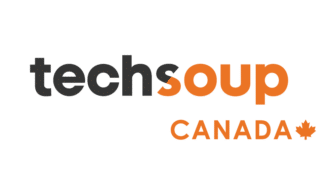Digital Rights 101: Understanding how technology affects human rights for all
 This post is the first in a series being hosted by TechSoup Canada, whose mission is to help Canadian nonprofits, charities, and libraries achieve greater impact through the effective use of technology. TechSoup Canada does this by connecting nonprofits to affordable technologies, so they can invest the majority of their resources into their mission, and by providing valuable learning resources so nonprofits can make smart technology decisions.
This post is the first in a series being hosted by TechSoup Canada, whose mission is to help Canadian nonprofits, charities, and libraries achieve greater impact through the effective use of technology. TechSoup Canada does this by connecting nonprofits to affordable technologies, so they can invest the majority of their resources into their mission, and by providing valuable learning resources so nonprofits can make smart technology decisions.
Today, technology touches nearly every aspects of our daily lives, affecting our activities both on and offline. In many ways, tech empowers us to exercise our rights more fully by providing new opportunities to build connections and share ideas beyond our immediate community. The internet has expanded the possibilities for work, education, access to healthcare, and more. But these same technologies can unfortunately serve to infringe our rights. They can be used to surveil and silence marginalized communities at a scale that was never before possible.
That is why organizations like Access Now are fighting to ensure that as technology advances, human rights protections advance along with it, and fundamental rights like privacy and free expression are maintained in digital spaces.
The question of how technology shapes the way organizations and communities operate is vitally important. If you or your nonprofit haven’t started thinking about digital rights, here’s why you should:
Marginalized communities are disproportionately affected by digital rights violations
Marginalized communities around the world are disproportionately affected — whether they’re being denied access to critical resources, subjected to surveillance, or targeted for online harassment. This discrimination happens at all stages, beginning with the design of technologies. There is a lack of diversity among those who are designing new technologies, which means there is an inherent bias that does not take into account many communities’ needs or use cases. In application, these tools are, directly and indirectly, put to use in ways that discriminate based on race, gender, religion, sexual orientation, nationality, and more.
Likewise, supply chains for our tech devices are often riddled with exploitative practices that exclude local communities from the benefit of local resources and inflict significant damage on the environment. Yet the same companies who profit from those supply chains often refuse to invest in the infrastructure that is necessary for rural, poor, and underserved communities to utilize those technologies. And when they do, they often turn to “free” services targeting poor communities that extract excessive amounts of personal data.
Connectivity and Net Neutrality
Regardless of the issue areas or communities your organization works with, connectivity and Net Neutrality — the principle that all content on the internet should be treated equally, without interference from internet service providers — impact every organization’s ability to access its audience and pursue its mission. Information gatekeepers imposing censorship and other forms of information control — whether they are corporations or governments — can impact your ability to convey your message and receive information from your community.
Limitations on access to information
Further, limitations on access to information undermine democratic processes and contribute to the universal problem of shrinking space for civil society. Independent media, non-government organizations, and human rights defenders are increasingly becoming the global target of surveillance, malware attacks, and other threats. And even if your organization is not immediately at risk, a threat to one is a threat to all.
Respecting rights of your online community
Finally, your organization has a responsibility to respect the rights of your online community. That means following digital security best practices to protect your followers’ data, making rights-respecting decisions about tracking and data storage, and empowering your followers to make informed choices about how their data is used.
There are a lot of ways — both positive and negative — in which technology is impacting the work of civil society organizations and nonprofits. To explore those issues, 2,000+ activists, technologists, researchers, policymakers, and other stakeholders from more than 100 countries will gather in Toronto on May 16-18, 2018 for RightsCon — the world’s leading summit on human rights in the digital age. This is an intersectional community committed to sharing diverse experiences, learning from each other’s insights, and working together to create real change in the world. There are 450 sessions categorized into 18 unique thematic tracks covering whichever issue areas you work on: from diversity and digital inclusion to smart cities and civic tech.
